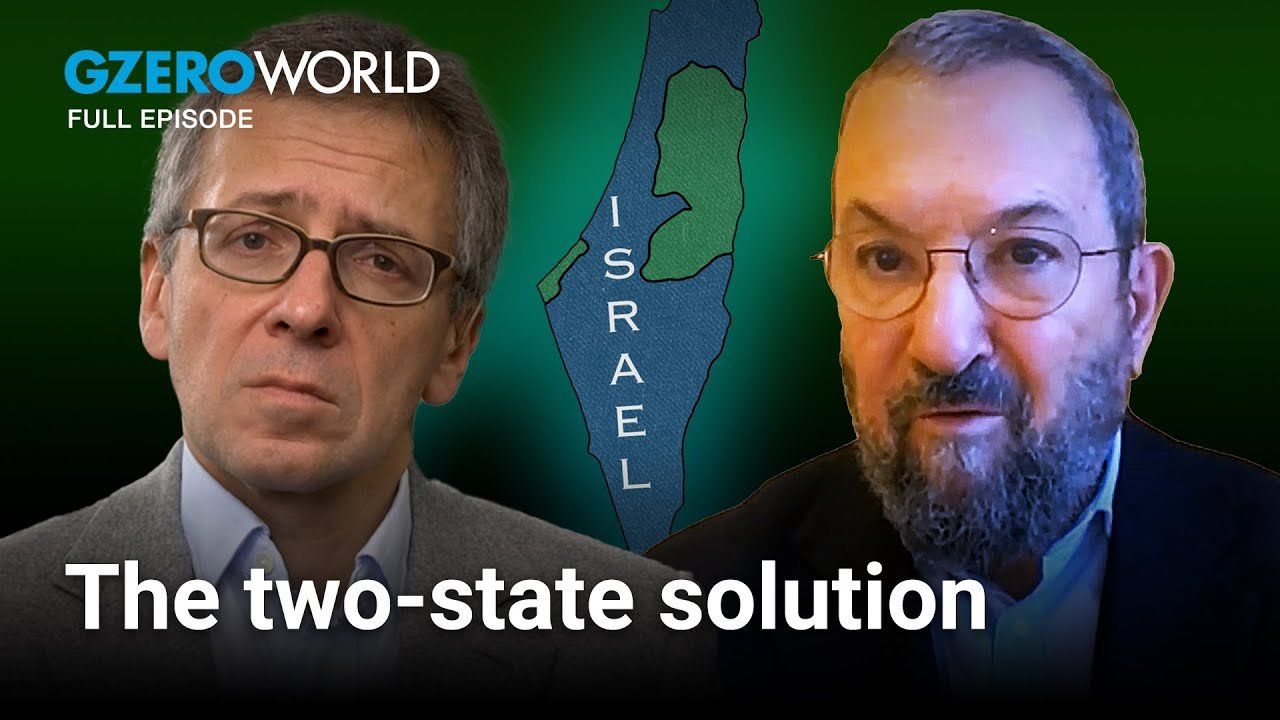GZERO World with Ian Bremmer
Is an Israel-Palestine two-state solution possible?

Is an Israel-Palestine two-state solution possible? | GZERO World with Ian Bremmer

Is a two-state solution still possible for Israel and Palestine? Ehud Barak weighs in.
On GZERO World, Ian Bremmer sits down with former Israeli Prime Minister Ehud Barak to discuss the ongoing war with Hamas, the escalating humanitarian crisis in Gaza, and whether the idea of a two-state solution with Palestine is still realistic. Barak participated in the 2000 Camp David summit with Yasser Arafat and has arguably come closer than any Israeli leader in modern to securing peace, though he ultimately failed.
“I’ve never lost sight of the idea that the only viable, long-term solution for this conflict in the Middle East remains, unfortunately, the two-state solution,” Barak tells Bremmer.
Today, Barak is critical of Prime Minister Benjamin Netanyahu’s policies of tacitly viewing Hamas in Gaza as an asset and the Palestinian Authority in the West Bank as a liability, instead of the other way around. He also admits that they should have gotten more humanitarian aid into Gaza sooner, but argues that the goal of destroying Hamas is critical for Israel’s future. Ultimately, he says the 240 estimated hostages still being held captive should be prioritized above all else, and that failing rescue them would amount to “abandonment” by the Israeli government.
Think you know what's going on around the world? Here's your chance to prove it.
In this episode of "ask ian," Ian Bremmer breaks down two high-stakes negotiations in Geneva: Russia-Ukraine and indirect US-Iran talks, calling both “underwhelming” with little progress.
In an era when geopolitics can feel overwhelming and remote, sometimes the best messengers are made of felt and foam.